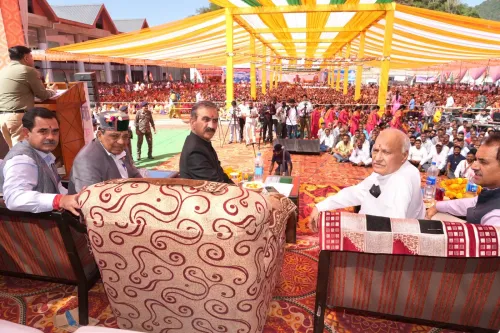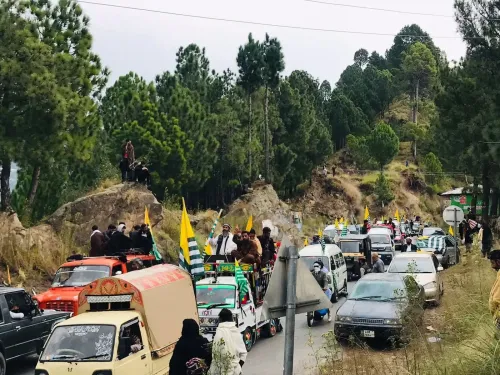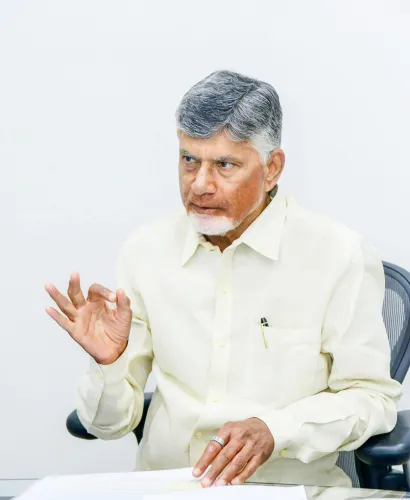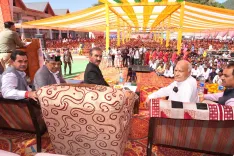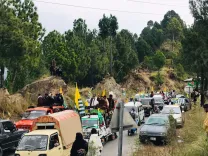Did PM Modi Urge Iranian President for Immediate De-escalation?
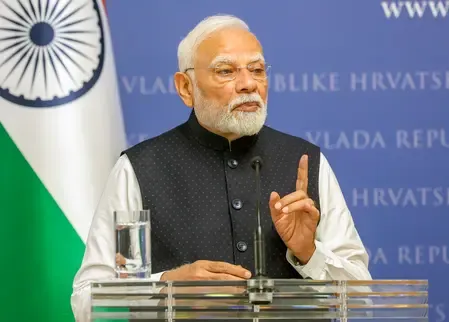
Synopsis
Key Takeaways
- Prime Minister Modi calls for urgent peace talks with Iran.
- US airstrikes on Iran escalate tensions significantly.
- Iran condemns the strikes as violations of international law.
- Israel's military actions signify a pre-emptive strategy against perceived threats.
- The situation underscores the need for diplomatic engagement in the region.
New Delhi, June 22 (NationPress) Prime Minister Narendra Modi engaged in a conversation with Iranian President Masoud Pezeshkian on Sunday, emphasizing the urgent need for de-escalation and diplomatic efforts aimed at reinstating peace in the Middle East.
In a message shared on X, PM Modi stated, "Spoke with President of Iran @drpezeshkian. We discussed in detail about the current situation. Expressed deep concern at the recent escalations. Reiterated our call for immediate de-escalation, dialogue and diplomacy as the way forward and for early restoration of regional peace, security and stability."
This call for renewed dialogue and diplomacy coincided with a day marked by the United States conducting airstrikes on three of Iran's nuclear facilities, eliciting widespread reactions from global leaders. Iran vehemently condemned these strikes, labeling them as 'brutal military aggression' and a serious breach of international law and the UN Charter.
Following the coordinated US airstrikes on the facilities located at Fordow, Natanz, and Isfahan, Iran called on the United Nations and the International Atomic Energy Agency (IAEA) to respond promptly.
In its official statement, Iran's Ministry of Foreign Affairs declared, "The Ministry of Foreign Affairs of the Islamic Republic of Iran condemns in the strongest terms the brutal US military aggression against Iran's peaceful nuclear facilities, which was committed in flagrant and unprecedented violation of the most fundamental principles of the United Nations Charter and the rules of international law, and holds the warmongering and law-breaking US government responsible for the extremely dangerous effects and consequences of this great crime."
Earlier that day, the Israeli Defense Forces (IDF) reported that the Israeli Air Force (IAF) had initiated a series of strikes against military sites in western Iran, following a missile assault by Iran.
"The IAF has begun a series of strikes towards military targets in western Iran," the IDF posted on X.
They further noted, "Additionally, this morning, the IAF struck missile launchers ready to launch toward Israeli territory, soldiers in the Iranian Armed Forces, and swiftly neutralised the launchers that launched missiles toward Israeli territory a short while ago."
According to the IDF, Iran had launched over 30 ballistic missiles at Israel earlier that day.
Israeli officials asserted that their actions against Iran were a pre-emptive strategy to prevent Tehran from obtaining nuclear weapons, a claim that Iran has consistently denied.

